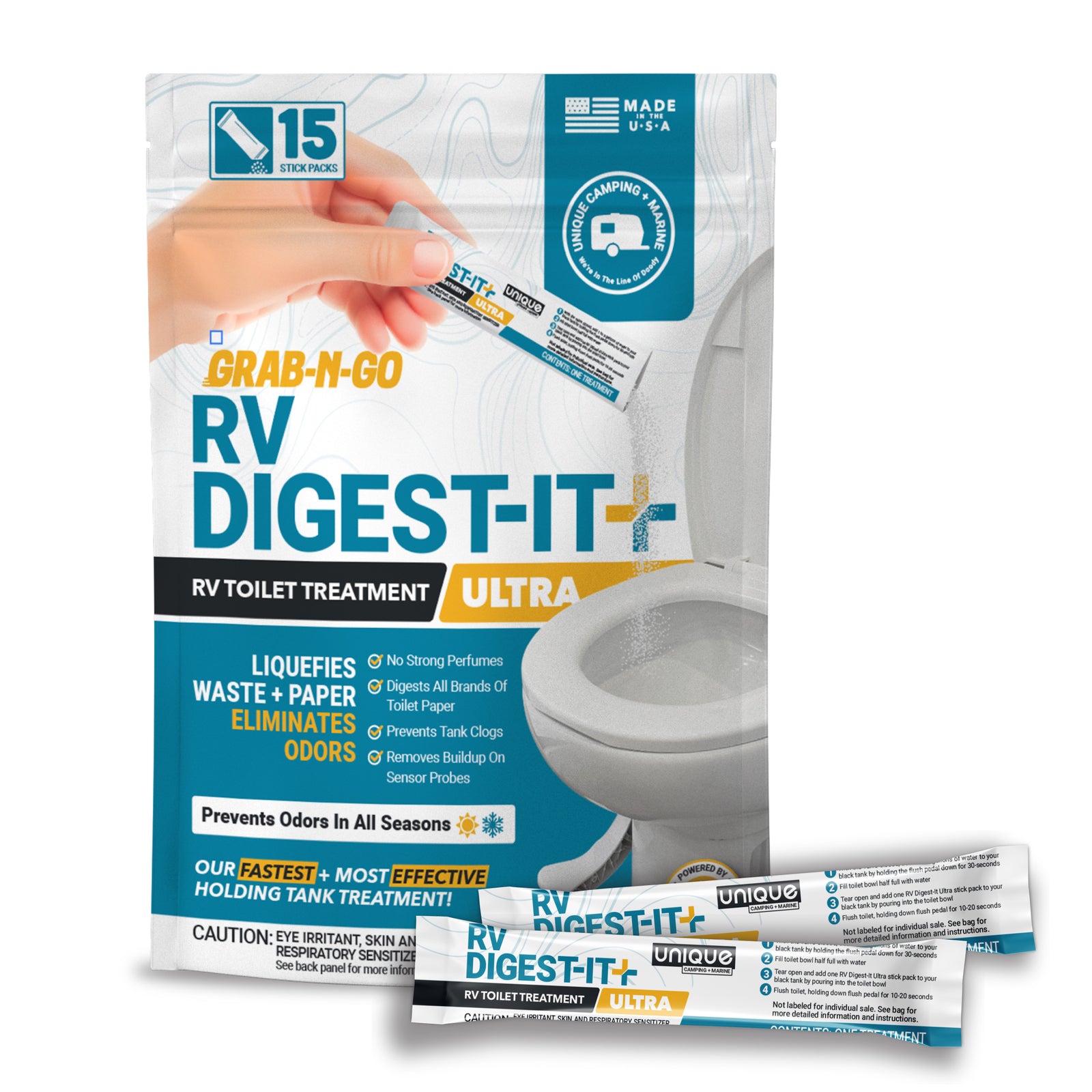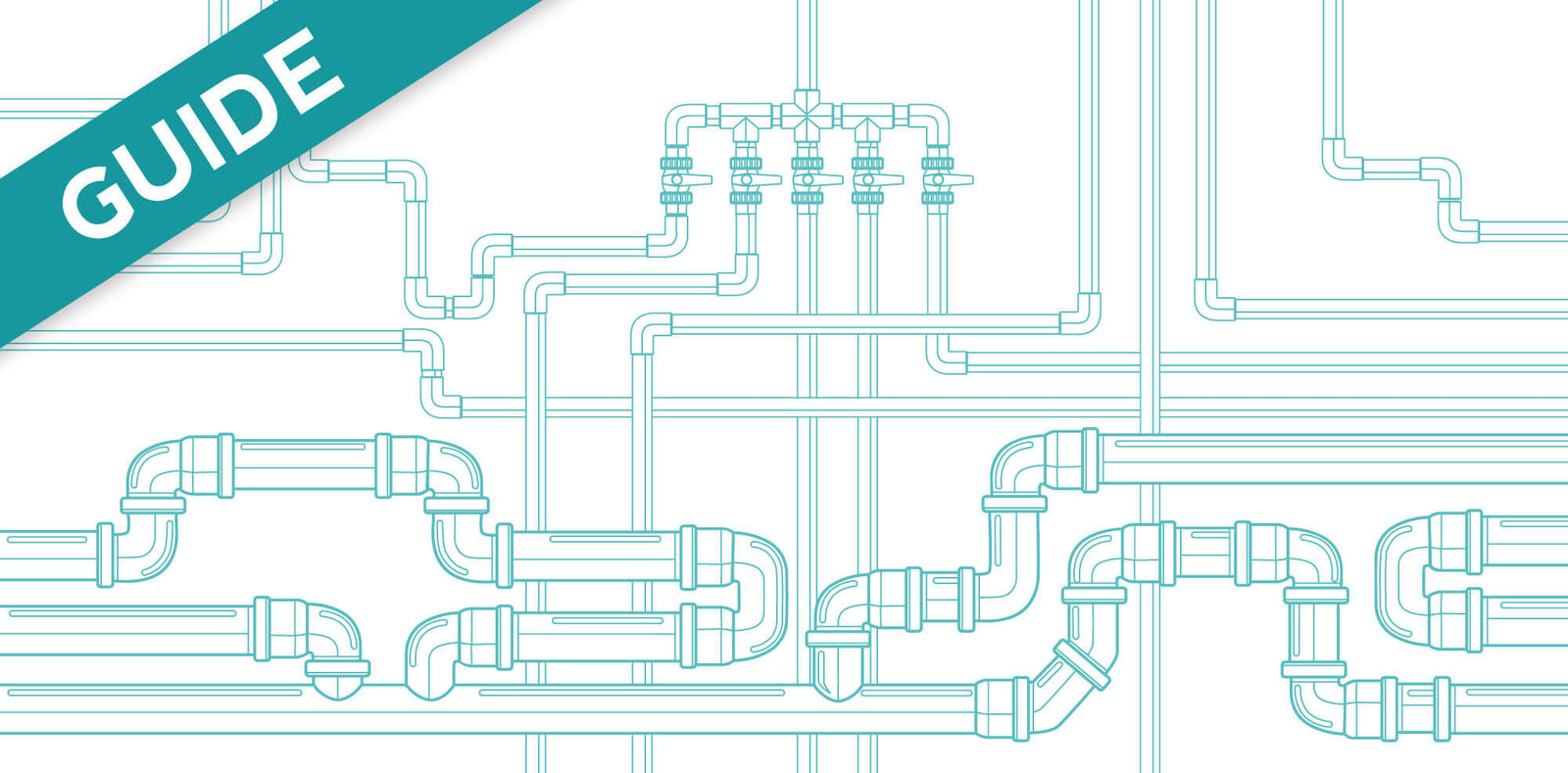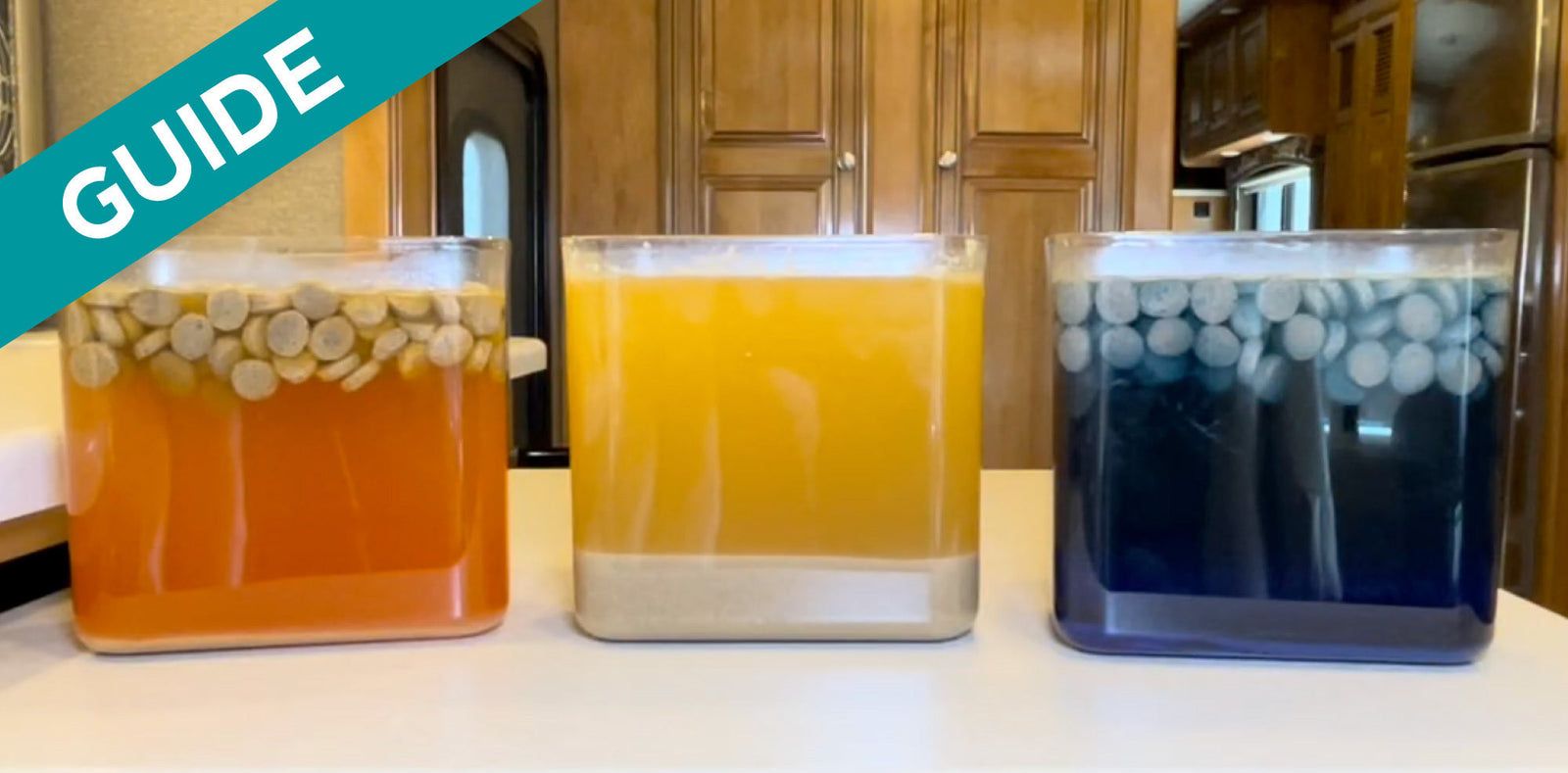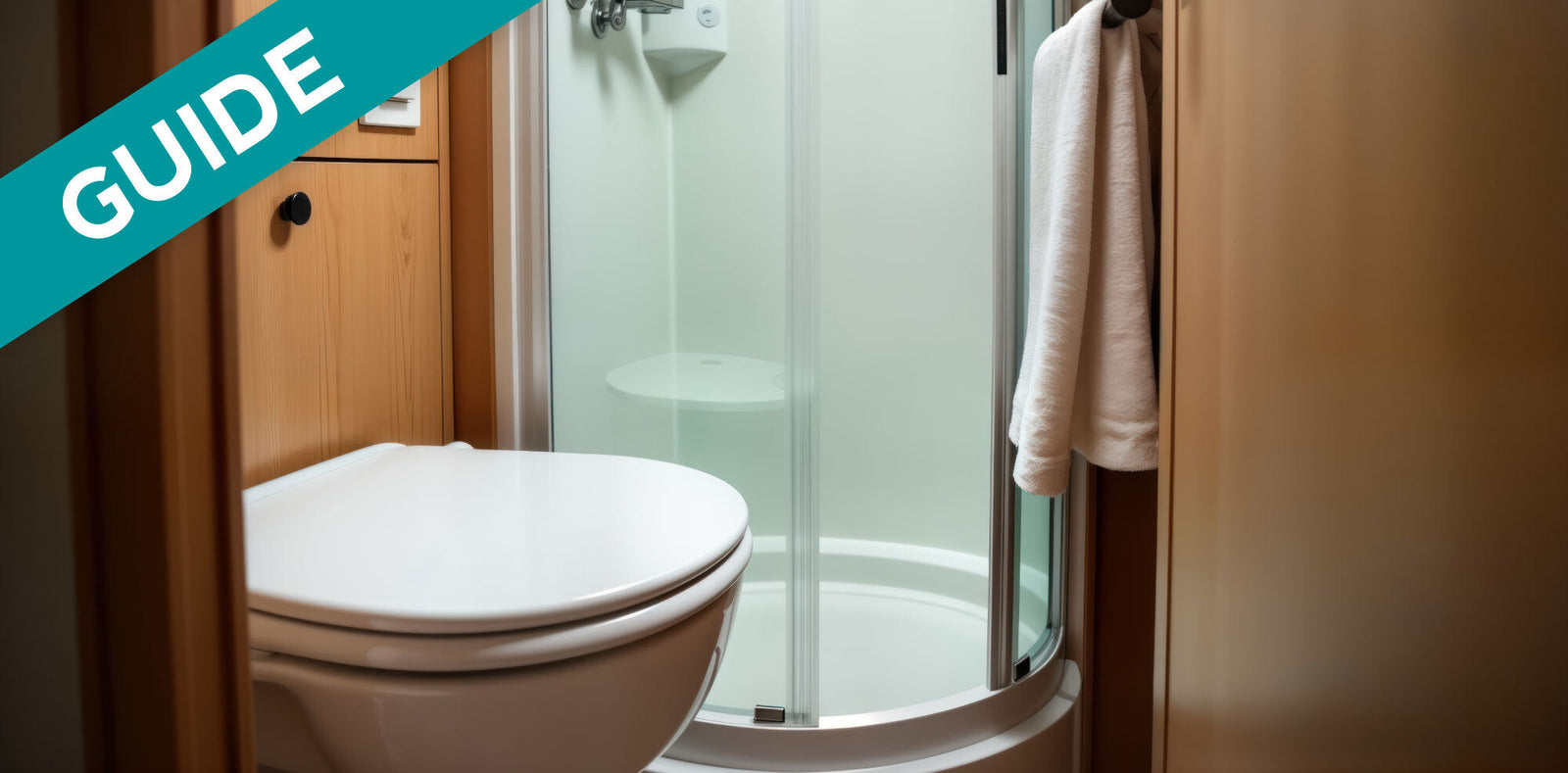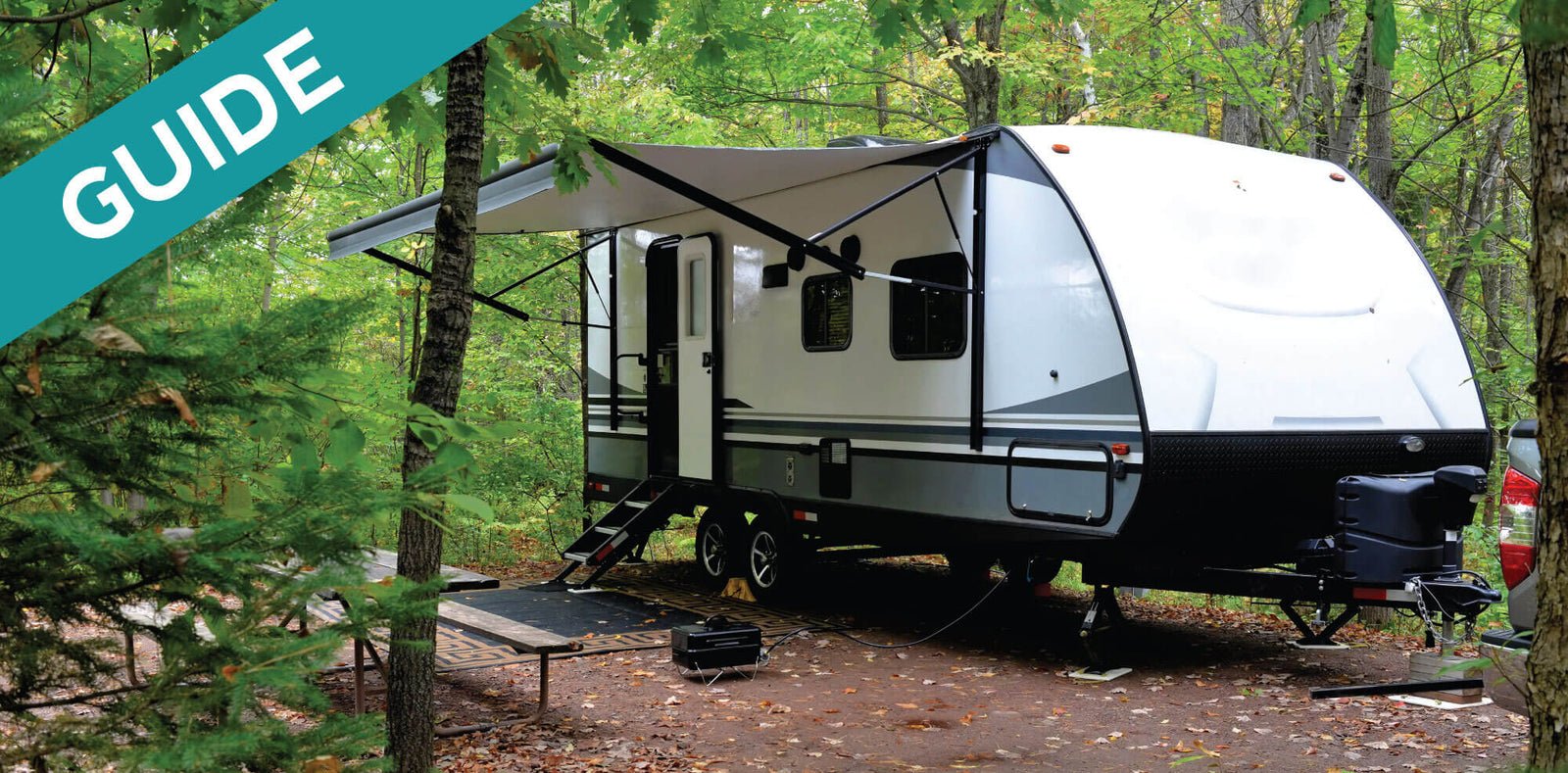
Key Points:
- The biggest cause of dry camping problems come from not using enough water, hot temperatures, and holding tanks not dumped frequently enough
- Proper black tank care while dry camping will prevent odors and clogs from ruining your trip
- We can’t forget that proper gray tank care while dry camping is also crucial for controlling odors
Dry camping (aka, boondocking) can be an affordable and adventurous way to travel in your RV. But dry camping (if not done correctly) can also cause some pretty major headaches when it comes to odors and clogs. Staying in a smelly RV while dealing with awful sewer odors and backed up toilets is not the ideal way to boondock. The good news is that dry camping without clogs and odors is very doable, and in this guide we’ll help you master the art of dry camping, while keeping odors and backups at bay.
Why Are Odors and Clogs Worse While Dry Camping?
Believe it or not, odor and clog issues arising from dry camping are really pretty common. These issues are generally caused by several key factors:
- Dry campers don’t use enough water. Because we’re often camping in remote locations when dry camping, we tend to try to save water by not flushing much down the toilet.
- Dry campers often camp in hot weather.Camping in hot weather causes the water in our holding tanks to evaporate. Again, water is necessary to keep odors under control, but water is also crucial for keeping everything (feces, toilet paper, etc.) in the tank liquified, helping keep clogs from forming. With little or no water in the tank, odors and clogs quickly get out of hand.
- Dry campers don’t dump their tanks frequently enough.One of the best parts about dry camping is adventuring off the beaten path.But, as such, this also means that the conveniences of things like easy spots to pump your tank are fewer and further between. As a result, our tanks don’t get dumped as often as they should. A lack of dumping coupled with low water use leads to a higher risk for frustrating odors and backups.
Guide Continued Below

Sign Up + Save
Join our newsletter and save $5 on your next order! Plus, get exclusive members-only discounts, access to our library of downloadable guides, and insider information on new products and promotions.
Blackwater Holding Tank Solutions When Dry Camping
These dry camping issues are definitely annoying and have the ability to ruin your whole trip. Thankfully, there are solutions to dealing with dry camping problems, and the solutions are actually fairly simple! Let’s walk through them in-depth.
Tips For Preventing Odors and Backups When Dry Camping
- Use a high-qualitywaste digesting holding tank treatment, in your black tank before, during, and after your trip.This treatment will help keep the odors down, and more importantly, prevent any buildup inside your holding tank during a dry camping trip.
- Pre-charge your black tank with 2-4 gallons of water before you hit the road.Adding a few gallons of water to your black tank before you hit the road will help hydrate the bacteria in your holding tank treatment. This Pre-charge, as they call it, also provides your tank with needed water for odor prevention and waste breakdown when boondocking.
- Use plenty of water in your black tank.Dry campers who want to save water can find this step difficult, but if avoiding odors, clogs, and misreading sensors is your goal, using enough water is an absolute must. We recommend that you hold down your flush pedal on your toilet for 10 full seconds every time you use it. This is an easy way to ensure that you have ample amounts of water in your tank to keep solid waste from forming into clogs.
- Keep several inches of water in your toilet bowl at all times. This will create a water barrier that prevents odors from seeping into your living space.
- Dump often and rinse your black tank very thoroughly with each dump.When possible, you should dump your black tank every 3-5 days (especially in hot temperatures). After each dump, we recommend thoroughly rinsing your holding tank with a built-in tank rinser, external flusher, or wand. No matter how well your holding tank treatment breaks down the waste inside your tank, some trace amounts will always accumulate in the low spots of your tank, and a thorough rinse is a surefire way to make sure the tank is at its cleanest.
Grey Water Holding Tank Solutions When Dry Camping
Believe it or not, black water tanks aren’t the only tanks you need to worry about odor issues with when Dry Camping. Your grey water holding tanks can also cause problems. Let’s look at a few tips that will tackle the odor issues before they start.
- Pre-Treat with water and Dawn.The night before you head out, fill tank with water, pour in 12-16 oz of blue Dawn. The next morning, dump your tanks at an approved dump station and then flush the system if possible.
- Keep solid food waste out of your gray tank. Scrape excess food off into the trash, wipe your plates clean, and use an in-drain sink strainer when washing those dishes to catch any remaining debris before it can go down the drain.
- Use a high-quality, bacteria-based waste digester. A good waste digester will break down residual food grease and soap scum that can build up and coat your sensor probes while helping to control any gray tank odors.
- Deep clean your gray tank after every boondocking trip.
Please Note: It is usually illegal to dump your RV gray water tank on public lands. Be sure to check all local laws.Waste water disposal can sometimes be tricky when you dry camp, use this guide on where to dump if you are having trouble finding a place on the road.
The Unique Method And Dry Camping
Several of the points made in this guide come from The Unique Method. What is the Unique Method you ask? The Unique Method is a scientifically-based approach to treating and maintaining your holding tanks in any and every travelling scenario and environment. It helps thousands of boondockers every year keep their tanks odor-free and flowing. For more information on The Unique Method and how to use it, click here.
Final Thoughts
The success of your dry camping adventure ultimately depends on how well you implement the proper care habits. But as long as you follow all the steps in this guide while also employing The Unique Method in your everyday camping experiences, you can be sure to avoid odors and backups on your next adventure off the beaten path.
We hope that this article has helped to answer all your questions about preventing odors and backups in your holding tank while dry camping! We have all products mentioned in this article bundled as a product pack for your convenience. If you have any further questions or concerns, please feel free to reach out to our customer support team.

Prevent Common Problems In Your Tanks!
From misreading sensors, preventing clogs, or eliminating odors, we've got you covered no matter how you camp! All our best holding tank tips and trick information plus more can be found conveniently in one place when you download our FREE Unique Method Field Guide PDF. Achieve holding tank bliss today!
Get The Free Download Get The Free Download
